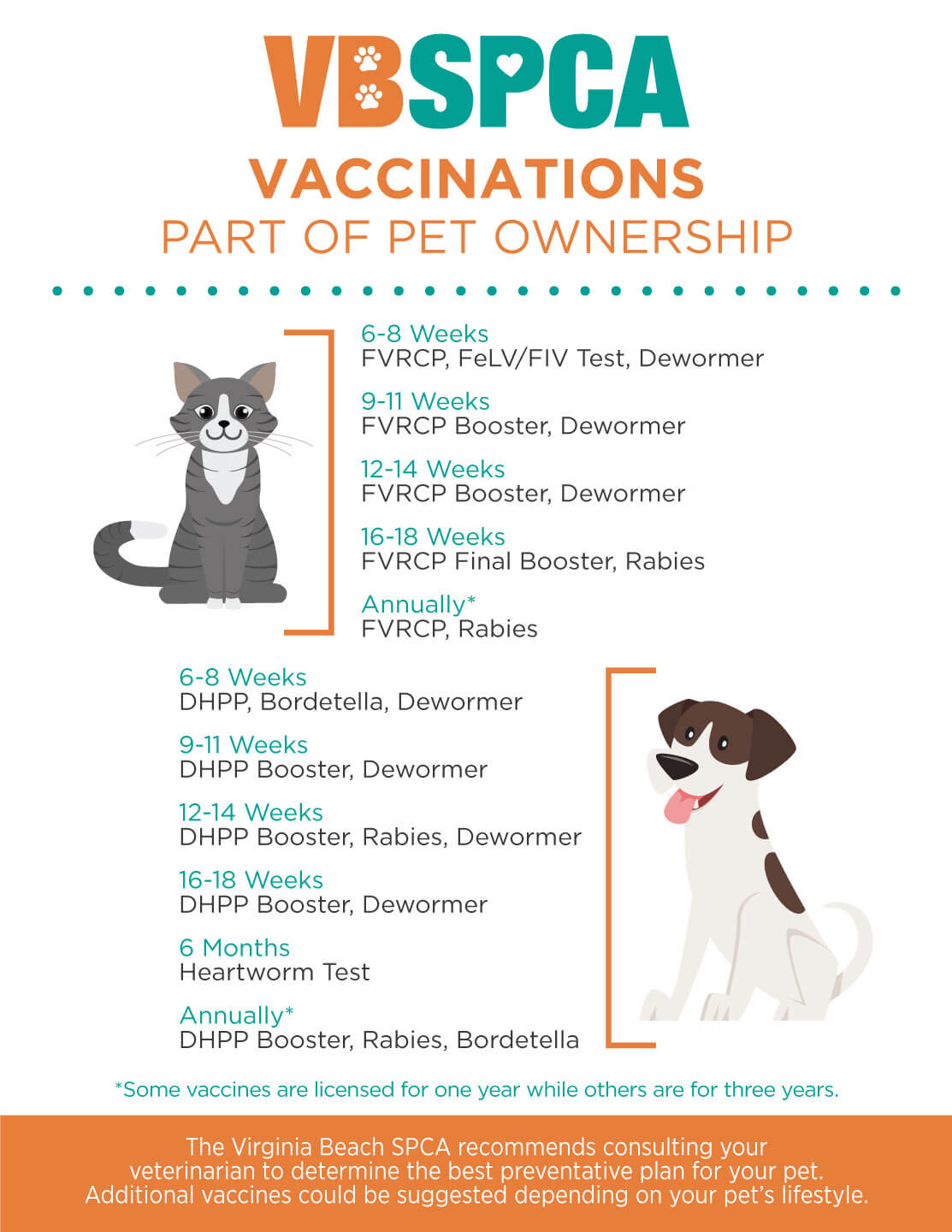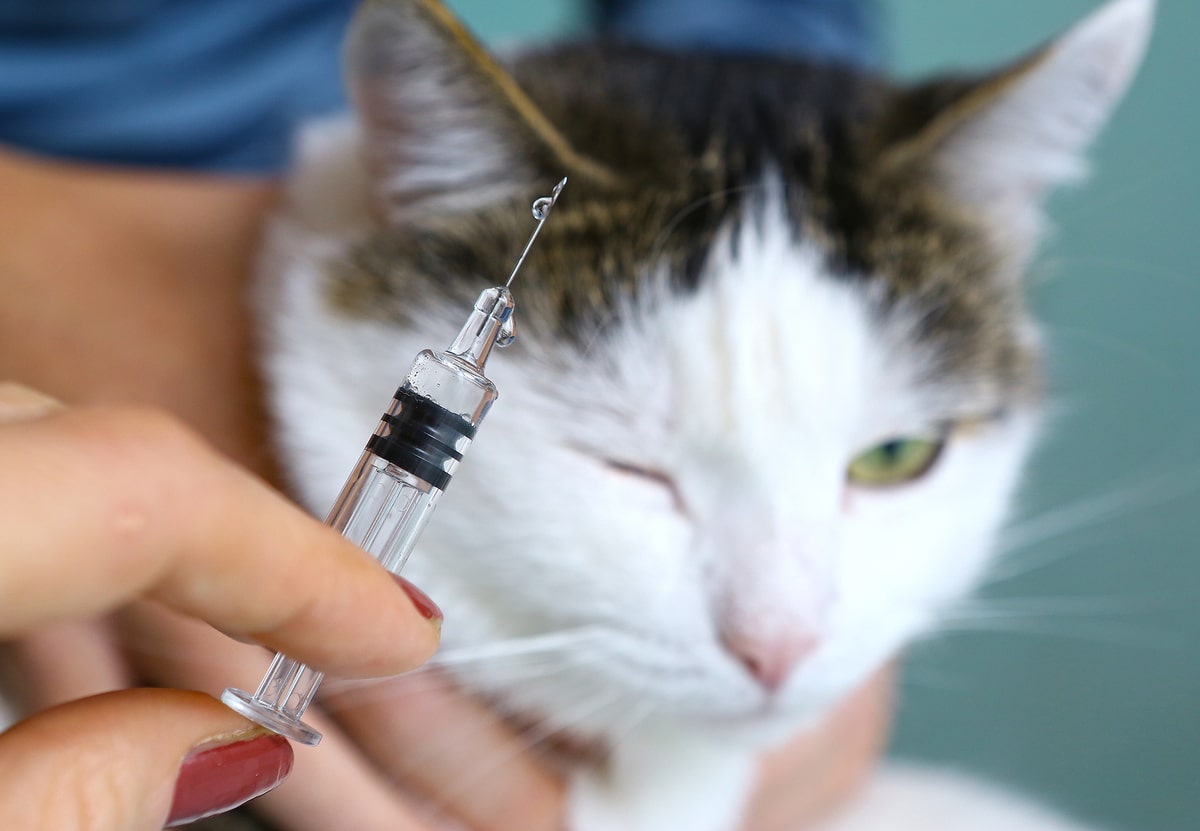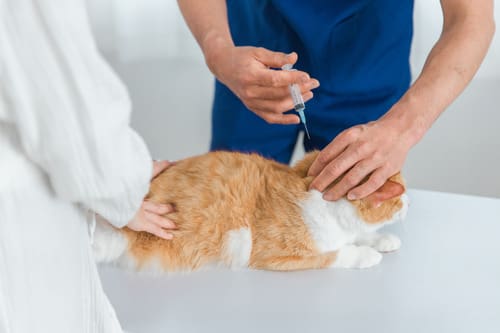Cats need a rabies shot once every one to three years, depending on the vaccine used. Always consult your veterinarian for guidance.
Rabies is a deadly viral disease that affects the central nervous system of mammals, including cats. Vaccinating your cat against rabies is essential for their health and safety. Rabies vaccinations are often required by law and help prevent the spread of this fatal disease.
The frequency of rabies shots can vary, with some vaccines requiring annual boosters and others lasting up to three years. Your veterinarian can recommend the best vaccination schedule based on your cat’s needs and local regulations. Keeping your cat’s rabies vaccinations up to date is a crucial part of responsible pet ownership.
:strip_icc()/kitten-vaccination-schedule-4165446_COLOR-39a9db76d8ae4f7f9118aafa746e4a1d.jpg)
Credit: www.thesprucepets.com
Importance Of Rabies Vaccination
Rabies is a deadly virus that affects the brain. It can spread to both animals and humans. Cats can get rabies from bites by infected animals. The virus is almost always fatal once symptoms appear. Early vaccination can prevent this disease. Unvaccinated cats can put your family at risk.
Vaccinating your cat protects it from rabies. It also keeps your family safe. Vaccinated cats are less likely to spread rabies. Many places require rabies shots by law. This helps control the spread of the virus. Regular shots ensure your cat stays protected.
Rabies Vaccination Schedule
Cats need an initial rabies shot by the age of 12 weeks. This first shot helps build their immunity against the rabies virus. It is very important for the health and safety of your cat. Always consult your veterinarian for the best vaccination plan.
After the initial shot, cats require booster shots to maintain their protection. The first booster is needed one year after the initial vaccination. Subsequent boosters are often given every three years. Some areas may require more frequent boosters. Always check local laws and regulations.
Legal Requirements
Each state has its own laws for rabies shots. Some states require yearly vaccinations. Other states may need shots every three years. Always check with your local vet. They know the laws best. Keeping your cat vaccinated is very important. It protects your cat and the community.
Traveling with a cat to another country can be tricky. Many countries have strict rules about rabies shots. Your cat might need a recent shot within the last year. Some places ask for a rabies titer test. This test shows your cat has enough rabies antibodies. Always check the rules before you travel. It keeps your cat safe and avoids problems at the border.
Types Of Rabies Vaccines
Killed virus vaccines use dead virus particles. These vaccines are safe for cats. They help the cat’s body to build immunity. These shots are given every one to three years. The duration depends on the vaccine type. They are often called inactivated vaccines.
Recombinant vaccines use genetic engineering. These vaccines do not have the whole virus. They are safer and cause fewer reactions. Cats get these shots every one to three years. This type of vaccine is newer than killed virus vaccines.
Signs Of Rabies In Cats
Cats with rabies often show early signs. These signs include fever and a loss of appetite. They may also become more aggressive or shy. Drooling is another common sign. Affected cats might also have a change in their meow. They might start to avoid light.
In advanced stages, cats might have trouble swallowing. They may become paralyzed. Seizures are another serious symptom. The cat’s behavior can become very erratic. Hydrophobia, or fear of water, is a key sign. Sadly, these symptoms usually lead to death.

Credit: vbspca.com
Possible Side Effects
Cats may experience mild side effects from rabies shots, such as lethargy or slight swelling at the injection site. Serious reactions are rare but can occur, so monitoring your cat after vaccination is essential.
Common Reactions
Some cats may experience mild side effects. These include slight fever, tiredness, and soreness at the injection site. Your cat might also show a small lump where the shot was given. These reactions are normal and usually go away within a few days. Keeping an eye on your cat during this time is important.
Severe Reactions
Severe reactions are rare but possible. These include difficulty breathing, swelling of the face or paws, and vomiting. If you notice these symptoms, contact your vet immediately. Severe reactions can be life-threatening and need quick action. Always keep emergency contact numbers handy.
Consulting Your Veterinarian
Your vet will help you pick the best vaccine. Some vaccines last for one year. Others can protect your cat for three years. The vet will check your cat’s health. This helps them choose the right vaccine. Different cats might need different vaccines. It is important to follow your vet’s advice.
Watch your cat after the vaccine. They might feel sleepy or tired. Some cats have a sore spot where the shot was given. This is normal and should go away in a day. If your cat seems very sick, call the vet. Most cats are fine after their shots. Keeping an eye on them helps catch any problems early.
Maintaining Vaccination Records
Keep a vaccination record for your cat. Write down the date of each shot. Include the type of vaccine given. Note any side effects observed. This helps track your cat’s health. Share this record with your vet.
Vaccination documentation is vital. It proves your cat is protected. Some places require these records. They are needed for travel or boarding. Documentation helps in emergencies too. Always keep it up to date.

Credit: forevervets.com
Frequently Asked Questions
How Often Do Indoor Cats Need A Rabies Shot?
Indoor cats need a rabies shot every one to three years. Follow your vet’s recommendations and local regulations. Regular vaccinations ensure your cat’s health and safety.
How Long Does A Rabies Vaccine Last In A Cat?
A rabies vaccine in a cat typically lasts for one year. Some vaccines may offer protection for up to three years. Always follow your vet’s advice for booster shots.
What Yearly Vaccines Do Cats Need?
Cats need yearly vaccines for rabies, feline distemper (FVRCP), and feline leukemia (FeLV). Consult your vet for specific recommendations.
At What Age Should You Stop Vaccinating Your Cat?
Cats should receive core vaccines throughout their lives. Consult your vet for a tailored vaccination schedule for senior cats.
Conclusion
Ensuring your cat receives regular rabies shots is crucial for their health. Rabies vaccination schedules vary, so consult your vet. Keeping up with these shots protects your pet and community. Regular vet visits are key to maintaining your cat’s well-being.
Always prioritize your cat’s health and safety.

Hello, this is Frank Swanson, the owner, and operator of Pet Info Hut. I created this website as a way to share my love of pets with the world. I have over 7 years of experience working with animals, and I have a passion for helping people care for their pets. I hope that you find my website useful and informative. Thanks for visiting!
